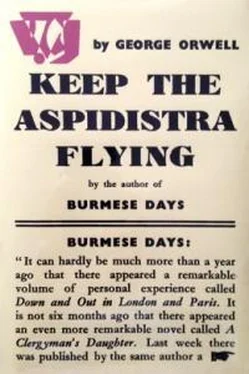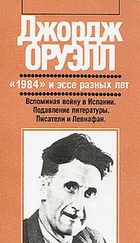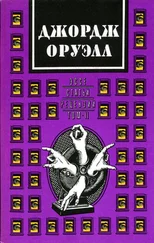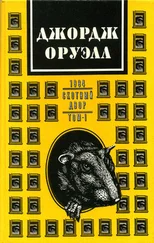'Look here, Ravelston, I can't stay here any longer. You've kept me long enough. I'm going to clear out tomorrow morning.'
'But my dear old chap! Do be sensible. You haven't—' But no! Not even now, when Gordon was openly on the rocks, could Ravelston say, 'You haven't got any money.' One can't say things like that. He compromised: 'Where are you going to live, anyway?'
'God knows—I don't care. There are common lodging–houses and places. I've got a few bob left.'
'Don't be such an ass. You'd much better stay here till you've found a job.'
'But it might be months, I tell you. I can't live on you like this.'
'Rot, my dear chap! I like having you here.'
But of course, in his inmost heart, he didn't really like having Gordon there. How should he? It was an impossible situation. There was a tension between them all the time. It is always so when one person is living on another. However delicately disguised, charity is still horrible; there is a malaise, almost a secret hatred, between the giver and the receiver. Gordon knew that his friendship with Ravelston would never be the same again. Whatever happened afterwards, the memory of this evil time would be between them. The feeling of his dependent position, of being in the way, unwanted, a nuisance, was with him night and day. At meals he would scarcely eat, he would not smoke Ravelston's cigarettes, but bought himself cigarettes out of his few remaining shillings. He would not even light the gas–fire in his bedroom. He would have made himself invisible if he could. Every day, of course, people were coming and going at the flat and at the office. All of them saw Gordon and grasped his status. Another of Ravelston's pet scroungers, they all said. He even detected a gleam of professional jealousy in one or two of the hangers–on of Antichrist. Three times during that week Hermione Slater came. After his first encounter with her he fled from the flat as soon as she appeared; on one occasion, when she came at night, he had to stay out of doors till after midnight. Mrs Beaver, the charwoman, had also 'seen through' Gordon. She knew his type. He was another of those good–for–nothing young 'writing gentlemen' who sponged on poor Mr Ravelston. So in none too subtle ways she made things uncomfortable for Gordon. Her favourite trick was to rout him out with broom and pan—'Now, Mr Comstock, I've got to do this room out, IF you please'—from whichever room he had settled down in.
But in the end, unexpectedly and through no effort of his own, Gordon did get a job. One morning a letter came for Ravelston from Mr McKechnie. Mr McKechnie had relented—not to the extent of taking Gordon back, of course, but to the extent of helping him find another job. He said that a Mr Cheeseman, a bookseller in Lambeth, was looking for an assistant. From what he said it was evident that Gordon could get the job if he applied for it; it was equally evident that there was some snag about the job. Gordon had vaguely heard of Mr Cheeseman—in the book trade everybody knows everybody else. In his heart the news bored him. He didn't really want this job. He didn't want ever to work again; all he wanted was to sink, sink, effortless, down into the mud. But he couldn't disappoint Ravelston after all Ravelston had done for him. So the same morning he went down to Lambeth to inquire about the job.
The shop was in the desolate stretch of road south of Waterloo Bridge. It was a poky, mean–looking shop, and the name over it, in faded gilt, was not Cheeseman but Eldridge. In the window, however, there were some valuable calf folios, and some sixteenth– century maps which Gordon thought must be worth money. Evidently Mr Cheeseman specialized in 'rare' books. Gordon plucked up his courage and went in.
As the door–bell ping'd, a tiny, evil–looking creature, with a sharp nose and heavy black eyebrows, emerged from the office behind the shop. He looked up at Gordon with a kind of nosy malice. When he spoke it was in an extraordinary clipped manner, as though he were biting each word in half before it escaped from him. 'Ot c'n I do f'yer!'—that approximately was what it sounded like. Gordon explained why he had come. Mr Cheeseman shot a meaning glance at him and answered in the same clipped manner as before:
'Oh, eh? Comstock, eh? Come 'is way. Got mi office back here. Bin 'specting you.'
Gordon followed him. Mr Cheeseman was a rather sinister little man, almost small enough to be called a dwarf, with very black hair, and slightly deformed. As a rule a dwarf, when malformed, has a full–sized torso and practically no legs. With Mr Cheeseman it was the other way about. His legs were normal length, but the top half of his body was so short that his buttocks seemed to sprout almost immediately below his shoulder blades. This gave him, in walking, a resemblance to a pair of scissors. He had the powerful bony shoulders of the dwarf, the large ugly hands, and the sharp nosing movements of the head. His clothes had that peculiar hardened, shiny texture of clothes that are very old and very dirty. They were just going into the office when the door–bell ping'd again, and a customer came in, holding out a book from the sixpenny box outside and half a crown. Mr Cheeseman did not take the change out of the till—apparently there was no till—but produced a very greasy wash–leather purse from some secret place under his waistcoat. He handled the purse, which was almost lost in his big hands, in a peculiarly secretive way, as though to hide it from sight.
'I like keep mi money i' mi pocket,' he explained, with an upward glance, as they went into the office.
It was apparent that Mr Cheeseman clipped his words from a notion that words cost money and ought not to be wasted. In the office they had a talk, and Mr Cheeseman extorted from Gordon the confession that he had been sacked for drunkenness. As a matter of fact he knew all about this already. He had heard about Gordon from Mr McKechnie, whom he had met at an auction a few days earlier. He had pricked up his ears when he heard the story, for he was on the look–out for an assistant, and clearly an assistant who had been sacked for drunkenness would come at reduced wages. Gordon saw that his drunkenness was going to be used as a weapon against him. Yet Mr Cheeseman did not seem absolutely unfriendly. He seemed to be the kind of person who will cheat you if he can, and bully you if you give him the chance, but who will also regard you with a contemptuous good–humour. He took Gordon into his confidence, talked of conditions in the trade, and boasted with much chuckling of his own astuteness. He had a peculiar chuckle, his mouth curving upwards at the corners and his large nose seeming about to disappear into it.
Recently, he told Gordon, he had had an idea for a profitable side– line. He was going to start a twopenny library; but it would have to be quite separate from the shop, because anything so low–class would frighten away the book–lovers who came to the shop in search of 'rare' books. He had taken premises a little distance away, and in the lunch–hour he took Gordon to see them. They were farther down the dreary street, between a flyblown ham–and–beef shop and a smartish undertaker. The ads in the undertaker's window caught Gordon's eye. It seems you can get underground for as little as two pounds ten nowadays. You can even get buried on the hire– purchase. There was also an ad for cremations—'Reverent, Sanitary, and Inexpensive.'
The premises consisted of a single narrow room—a mere pipe of a room with a window as wide as itself, furnished with a cheap desk, one chair, and a card index. The new–painted shelves were ready and empty. This was not, Gordon saw at a glance, going to be the kind of library that he had presided over at McKechnie's. McKechnie's library had been comparatively highbrow. It had dredged no deeper than Dell, and it even had books by Lawrence and Huxley. But this was one of those cheap arid evil little libraries ('mushroom libraries', they are called) which are springing up all over London and are deliberately aimed at the uneducated. In libraries like these there is not a single book that is ever mentioned in the reviews or that any civilized person has ever heard of. The books are published by special low–class firms and turned out by wretched hacks at the rate of four a year, as mechanically as sausages and with much less skill. In effect they are merely fourpenny novelettes disguised as novels, and they only cost the library–proprietor one and eightpence a volume. Mr Cheeseman explained that he had not ordered the books yet. He spoke of 'ordering the books' as one might speak of ordering a ton of coals. He was going to start with five hundred assorted titles, he said. The shelves were already marked off into sections—'Sex', 'Crime', 'Wild West', and so forth.
Читать дальше








